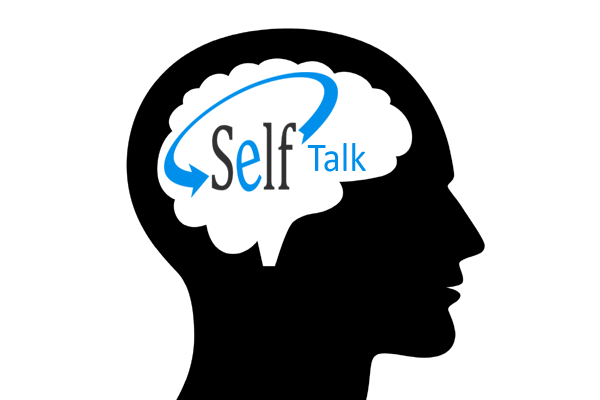Have you ever paid attention to what you said to yourself last ? That running conversation that interminably goes on in your head? Or did you just ignore it never thinking much about it ? Often people are conscious of an inner voice that provides a running monologue on their lives throughout the day and into the night. This inner voice, combining conscious thoughts with unconscious beliefs and biases, is an effective way for the brain to interpret and process daily experiences. We call this self-talk.
This internal chatter can be cheerful and supportive or negative and self-defeating. This voice is useful when it is positive, talking down fears and enhancing confidence. But we are prone to negative self-talk, however, and to sweeping assertions like “I can’t do a thing right” or “I’m a completely dumb.”
Self-talk is not random. It often exhibits patterns that repeat themselves and people have their own characteristic self-talk that is uniquely theirs . Some peoples self-talk is mostly about the future , while others is an internal dialogue about the past. Some self-talk is positive and upbeat, and some is harsh and critical, some could be gloomy , defeatist and negative. Sometimes it is focused on others sometimes fixated on things.
But what is important is – to listen to it. Because if one listens to it , one can learn a lot of useful stuff about oneself. One figures out areas where a certain kind of self talk ha a negative impact on your life. And once you know that , you can possibly do something about that by talking differently to yourself.
Negative self-talk often does not reflect one’s reality and can paralyze people into inaction and self-absorption. A critical inner voice may be driven by the desire to protect a person from the shame of failure. Some people even credit their inner critic with pushing them to develop self-discipline, and to recognize their weaknesses before others do so that they can address them head on and push forward.
People with depression and anxiety frequently experience destructive and dysfunctional self-talk; the internal chatter they hear may be incessant and overly critical. Overwhelmed by the negativity, they can wallow in painful rumination, attacking themselves ceaselessly. In severe cases, this type of inner dialogue can be curtailed with professional treatment, such as cognitive behavioral therapy.
The good news is that – For most of us, a negative inner critic can be challenged and sidelined, a process in which becoming consciously aware of its role is the first step. Simple and straightforward self-help techniques can be useful, such as practicing a more constructive inner voice with creative and positive tones, and addressing oneself in the third person.
Research has found that using one’s name instead of “I” during moments of inner dialogue can create a useful psychological distance from the self and its emotional intensity, enabling one to avoid rumination and to perform with greater perspective, calm, and confidence.
It is indeed important to turn down the volume of your negative inner voice and create a nurturing inner voice to take it’s place. When you make a mistake, forgive yourself, learn from it, and move on instead of obsessing about it.
It is equally important, not to allow anyone else to dwell on your mistakes or shortcomings or to expect perfection from you. Because imperfection is absolutely human.


